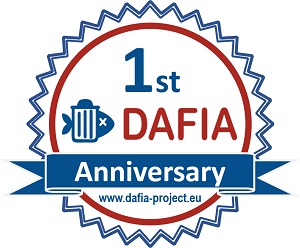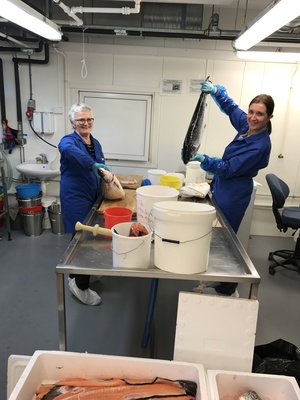 The DAFIA project, a Horizon 2020 project that aims to
convert municipal solid waste (MSW) and residual material from fish processing
into useful products, is approaching its one-year anniversary. To mark the
occasion, the third meeting of the DAFIA consortium was held in Copenhagen
on the 29th of November.
The DAFIA project, a Horizon 2020 project that aims to
convert municipal solid waste (MSW) and residual material from fish processing
into useful products, is approaching its one-year anniversary. To mark the
occasion, the third meeting of the DAFIA consortium was held in Copenhagen
on the 29th of November.
The first part of the project has focussed on characterising
different types of MSW and fish residues, and processing them to enable their
use in subsequent chemical and biotechnical processes. The project has
celebrated several achievements in it’s first year: fish residues have
successfully been converted into flame retardants for use in polymer blending,
and the organic fraction of MSW has successfully been processed into a nutrient
medium for microbial cell factories making monomer chemical building blocks.
In the second year of DAFIA, the microbial conversion of
processed waste into diacid and diamine building blocks will be optimised, and
scale-up and purification will commence. Additionally, polymers will be synthesized
from the isolated monomers. Food packaging and coatings from gelatine (derived
from fish-processing residues) will also be developed. In addition, work on the
techno-economic and life-cycle assessments will start. In total, the project
will run for 4 years, with the final years focussing on scale-up and
standardisation of all developed processes for easy commercialisation.
 DAFIA researchers fractionating
a whole salmon from Nutrimar at SINTEF Ocean ©SINTEF
DAFIA researchers fractionating
a whole salmon from Nutrimar at SINTEF Ocean ©SINTEF